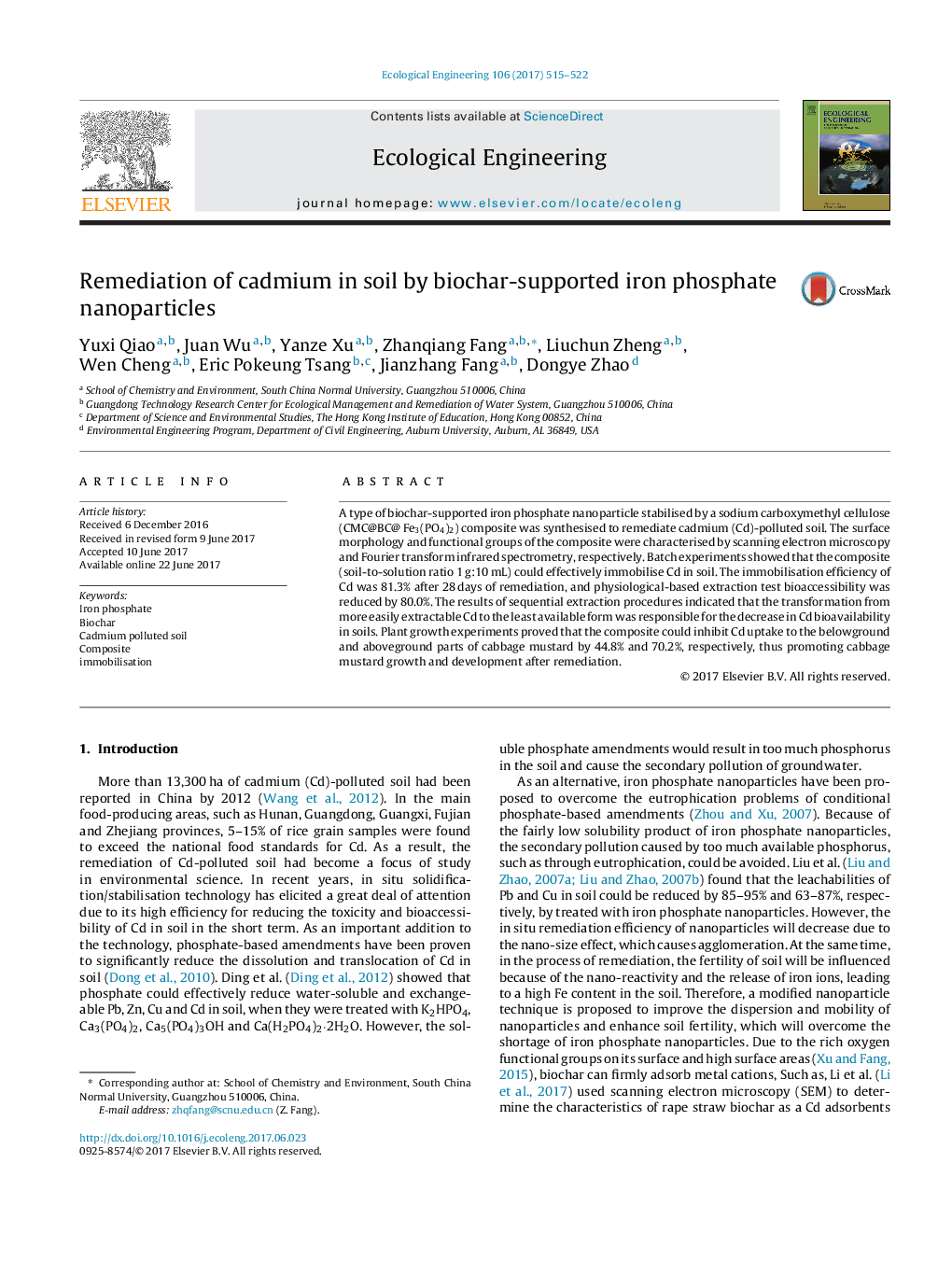| Article ID | Journal | Published Year | Pages | File Type |
|---|---|---|---|---|
| 5743869 | Ecological Engineering | 2017 | 8 Pages |
â¢Biochar-supported iron phosphate nanoparticle was synthesised.â¢The composite could effectively immobilise Cd in soil.â¢The composite could inhibit Cd uptake to the cabbage mustard.
A type of biochar-supported iron phosphate nanoparticle stabilised by a sodium carboxymethyl cellulose (CMC@BC@ Fe3(PO4)2) composite was synthesised to remediate cadmium (Cd)-polluted soil. The surface morphology and functional groups of the composite were characterised by scanning electron microscopy and Fourier transform infrared spectrometry, respectively. Batch experiments showed that the composite (soil-to-solution ratio 1Â g:10Â mL) could effectively immobilise Cd in soil. The immobilisation efficiency of Cd was 81.3% after 28Â days of remediation, and physiological-based extraction test bioaccessibility was reduced by 80.0%. The results of sequential extraction procedures indicated that the transformation from more easily extractable Cd to the least available form was responsible for the decrease in Cd bioavailability in soils. Plant growth experiments proved that the composite could inhibit Cd uptake to the belowground and aboveground parts of cabbage mustard by 44.8% and 70.2%, respectively, thus promoting cabbage mustard growth and development after remediation.
Graphical abstractDownload high-res image (77KB)Download full-size image
